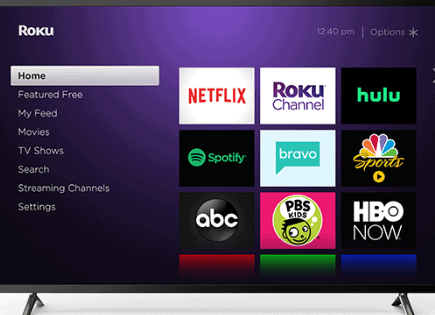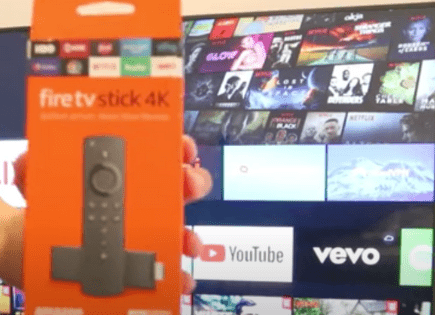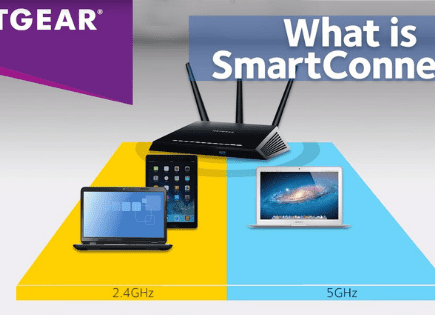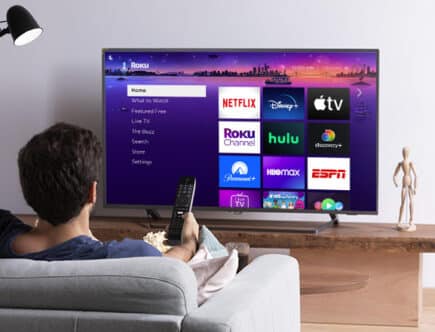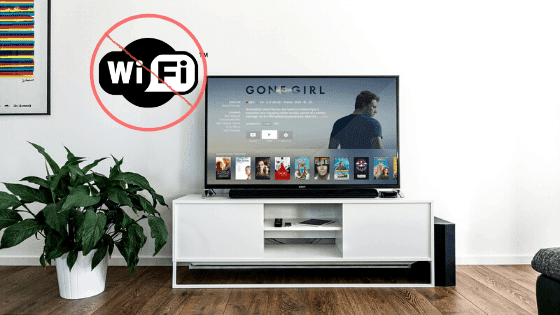
Will a Smart TV Work Without Internet Connection? (YES, but…!)
Built in internet capability is what actually makes a smart TV, “smart“. But do you need to use this capability? Will a smart TV work without internet connection?
Smart TV without internet connection
Yes, your smart TV will work fine without an internet connection. You will be able to watch TV channels with a cable box or antenna, connect Blu-ray/DVD players, hook up speakers, etc – just like a regular TV. You will not, however, be able to use any of the video streaming apps that come with it.
That said, it seems kind of silly to buy a smart TV and then not use any of the “smart” aspects of it.
Well yes, and no.
But first, let’s briefly review what a smart TV can do.
 Quick Summary
Quick Summary
Smart TVs work well without internet, offering basic functions of regular TVs. Connections to devices like DVD players, speakers, or cable boxes are possible, yet internet-dependent services won't function. Despite being called "smart," these TVs can operate as regular ones, though having internet capabilities unlocks additional features, such as streaming services. With more smart TVs on the market, the cost difference between them and traditional TVs is becoming increasingly negligible.
What can a smart TV can do?
We all have a pretty good grasp on what a regular TV can do, but what can a smart TV do?
You can think of a smart TV as a regular TV with internet connectivity. This internet connectivity allows your TV to connect to a variety of apps, just like your smart phone.
It wasn’t until about 2005 that video streaming services really started to take off. Before then, there weren’t a lot of benefits to having a TV with an internet connection.
Now, in 2020, there are countless video streaming apps offering amazing new content. I’m sure you’re familiar with most of them – Netflix, Disney +, YouTube TV, Hulu, Amazon Prime, Sling, etc.
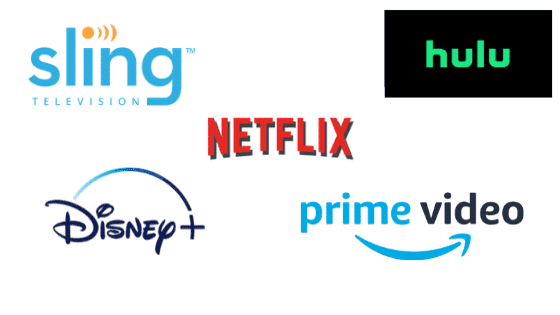
With a smart TV you can download each of these respective apps directly to your TV and access these video streaming services in real time.
These streaming services can act as a nice complement to your basic cable plan.
Or, if you’re like me, you can stop paying for cable altogether and just use your smart TV to play YouTube TV and Netflix, for example. But you will need internet to do this.
Newer smart TVs on the market today also incorporate voice recognition. So you can turn your TV on/off with your voice and select your channel or movie the same way. And in some cases smart TVs come integrated with smart home protocols, so you can control different aspects of your home from your TV.
Why buy a smart TV if you don’t have an internet connection?
Now that we know a smart TV will work even without an internet connection and we have a basic understanding of what a smart TV can do – why would someone ever buy one and not use it as a “smart” TV?
Because smart TVs are what’s available
As of 2020, 32% of all US household TVs are smart TVs. That means 1 in 3 United States TV owners actually own a smart TV.
More and more consumers are buying smart, and manufactures have taken notice. As a result you’re likely to buy a smart TV because that’s what’s available.
Now whether you use it as a smart TV, that’s a different story.
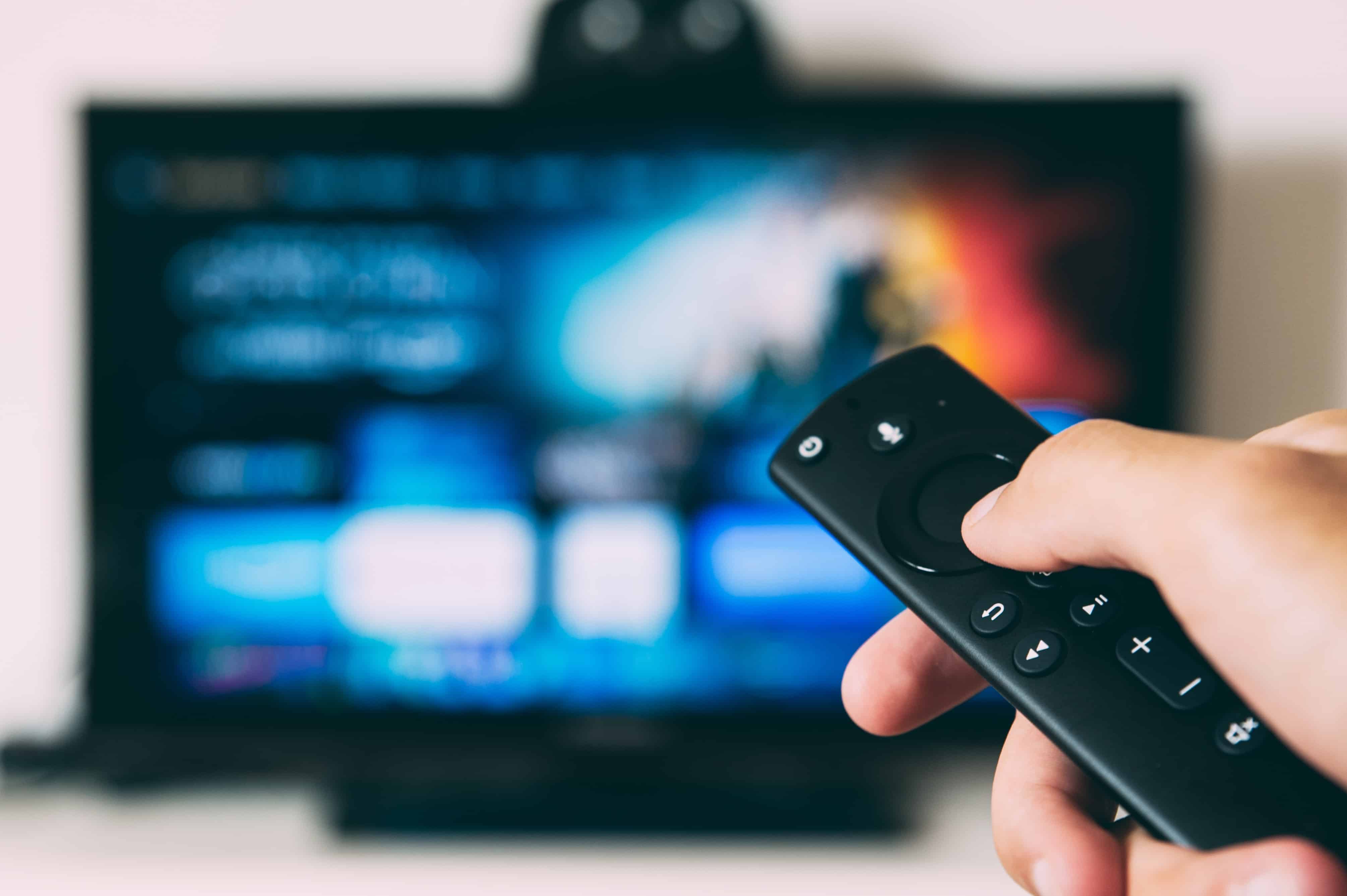
The idea that you’d buy a smart TV just because it’s what’s available isn’t that far fetched.
Per Tom’s Guide, “a smart TV costs around $100 more than a comparable set that lacks smart services. However, that price difference is quickly evaporating, and soon most sets will have smart services built in.”
So more and more smart TVs are being made and their price is pretty comparable to “dumb” TVs.
Because smart TVs offer additional features
In addition to what’s available, smart TVs offer more features than standard, dumb TVs.
For example, the number of HDMI ports is usually much higher on smart TVs.
We connect more devices to our TVs than ever, and in most cases those devices connect to our TV by and HDMI port. Video game systems, cable boxes, Blu-ray disc players, you name it.
You don’t want to be constantly connecting and reconnecting your devices to your TV. A smart TV provides enough connections that this usually isn’t a problem.
Smart TVs also tend to have better overall video quality compared to dumb TVs.
This again has a lot to do with companies focusing more of their attention on smart TVs and putting the latest tech into them.
Because there are a TON of streaming product alternatives
There are a growing number of consumers who buy smart TVs, only to use some other device to access the web and video streaming apps.
Let me explain.
Most house holds these days have PCs or laptops. I know personally, I use my laptop to watch Netflix and Hulu all the time. I sit the laptop right on my bed and viola, my own personal TV.
There are also some extremely user friendly and inexpensive HDMI streaming products available, like Amazon’s Fire Stick, Apple TV, and Google’s Chromecast.
Sometimes it’s just easier to navigate to your video streaming apps using these products than it is to use the interface of your smart TV.
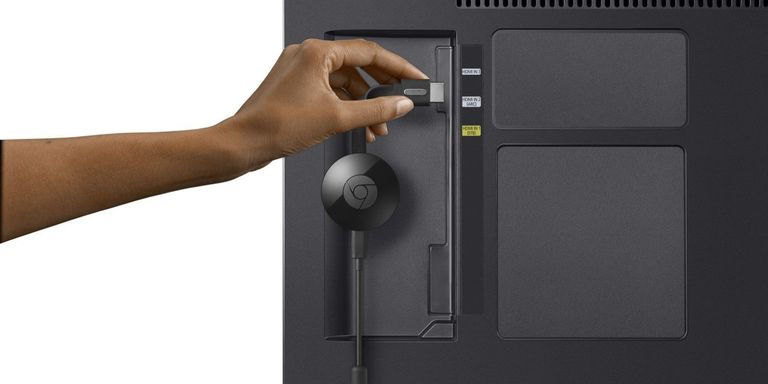
Even the video game consoles on the market today, XBox & PS3, offer the ability to download video steaming apps and access them through the console.
Concerns when using a smart TV without an internet connection
There are really only a few concerns worth mentioning when using a smart TV without an internet connection.
Smart TV Cost
One is cost, and we already touched on that. On average smart TVs cost about 100 dollars more than comparable dumb TVs. That said, the cost gap is getting smaller every year.
Smart TV firmware updates
The other concern has to do with the inability of your smart TV to get firmware updates.
Firmware is a software program (or set of instructions) that is programmed directly into a physical device. In this case, your smart TV.
Most smart TV companies push new versions of firmware to their smart TV products. This process of pushing updates is what’s referred to as a “firmware update”.
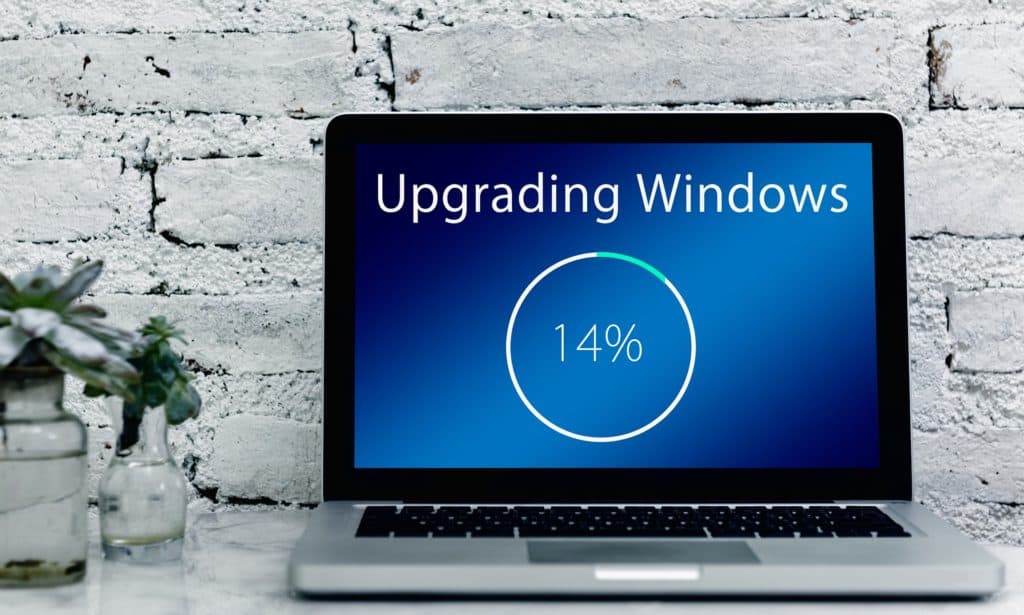
Why does a smart TV need firmware updates?
Firmware updates typically occur when new functionality is introduced for the TV, or to correct an issue (or bug) the TV might be experiencing.
Here are some examples of firmware updates from Sony to give you a sense of the types of changes that can happen with your smart TV:
- Update improves general performance of the TV
- Update resolves a condition where the TV restarts after pressing the [HOME] button and then the [RETURN] button on the remote control
- Update improves the Home screen menu for better usability and operation
You get the idea.
If your TV is smart and has an internet connection, it can usually receive these firmware updates automatically. But without an internet connection, you won’t get them.
This isn’t a deal breaker, since most of these updates are just “nice to haves” and not mandatory for your TV to work, but you should at least be aware of them.
Account creation during setup
One last concern is potentially running into complications during setup since some smart TVs require you to create an account and “login”, followed by immediate software updates.
This is not all that common but there are more and more brands requiring this so just be on the lookout for it.
How to connect your smart TV to the Internet
So you learned that your smart TV will still work just fine without the internet. But what if you decide you want to take full advantage of all the video streaming apps that come along with it?
That’s easy, just connect your smart TV to the internet!
Obviously you’ll need to have internet access set up at your home in order to do this. Assuming that you do, here are two ways to connect your TV to the Internet:
How to connect your smart TV to WiFi
The majority of smart TVs today come WiFi enabled, meaning you can simply connect by entering your WiFi network name and password on the TV.
To do this hit the Menu button on your remote and then go to Network Settings and Set up a wireless connection.
What’s great about this method is you don’t need to connect any additional wires to your TV. This gives you a lot of freedom when it comes to deciding where to place your smart TV in your home.
That being said, you’ll still have to be within range of your router so that the WiFi signal is strong enough for streaming!
How to use an Ethernet cable to connect a smart TV to the Internet
Another option when connecting your smart TV to the internet is to use an Ethernet cable. You’ll plug one end of the Ethernet cord directly into your TV and the other into the back of your router.
This option offers the strongest and most stable internet connection, but the downside is MORE WIRES!
In addition, you’ll likely need your smart TV to be even closer to your router – unless you have an extra long Ethernet cord and you’re willing to wire it throughout your home.
Conclusion
Yes, a smart TV will work without an internet connection.
No, you won’t be able to use its built in apps and video streaming services like Netflix and Hulu.
If you are going to use a smart TV without an internet connection there are several things to consider:
- Cost of a smart TV vs a dumb TV
- Inability to get firmware updates with out internet
- Occasional requirement to setup an account and update TV software during first use
That said, using a smart TV without internet is perfectly acceptable and in the majority of cases will work just fine!
What do you think? Is it worth getting a smart TV without an internet connection?

 Quick Summary
Quick Summary